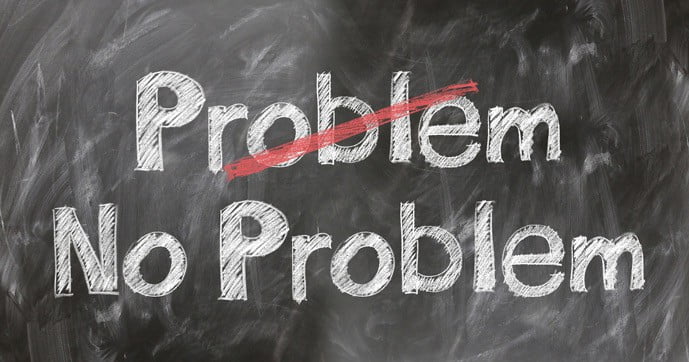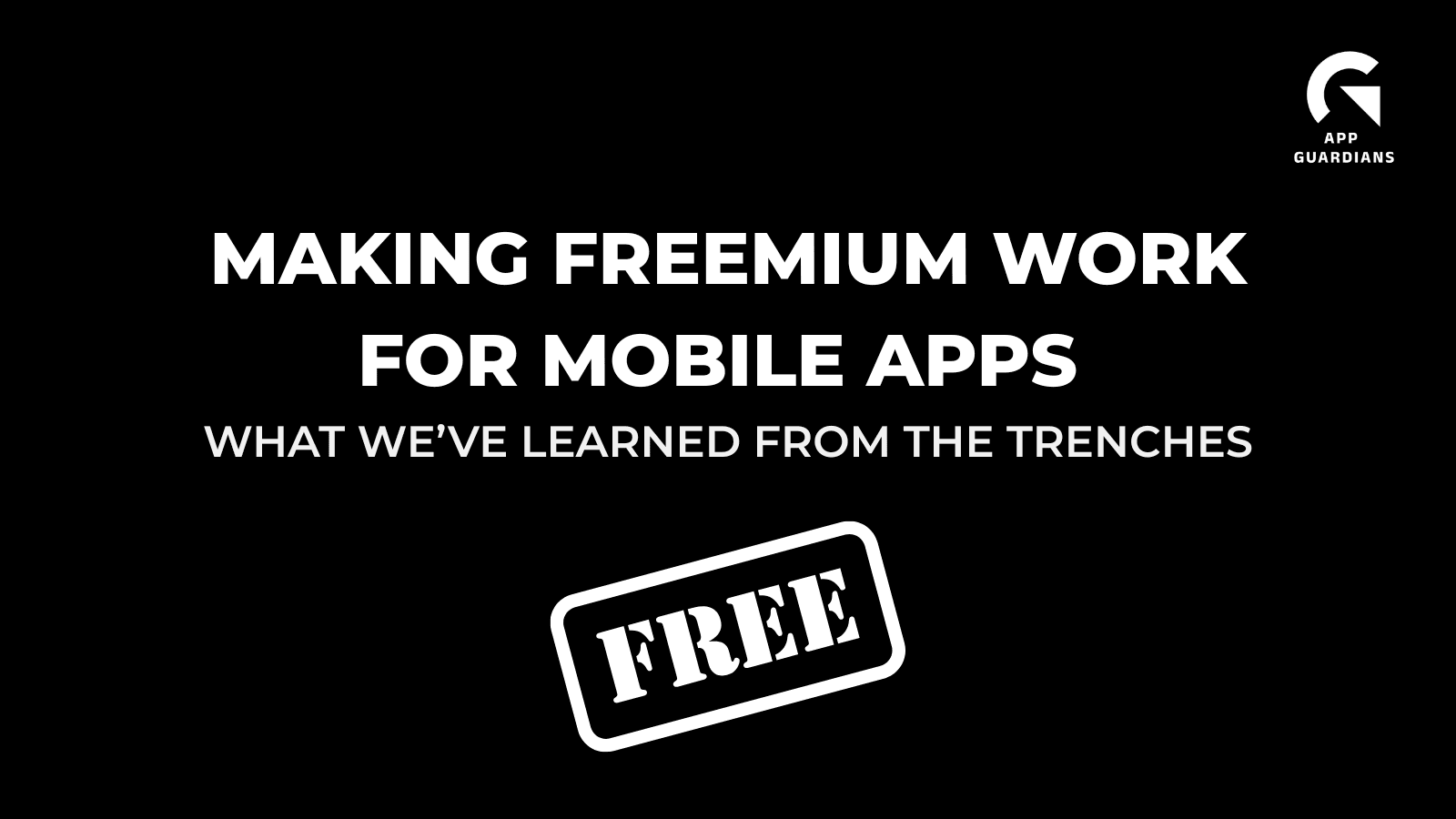Want to Create An App? App Pre-launch Blog Series (Part 1)
It’s officially 2020. A brand new year. A whole new decade.
Many see this time as an opportunity for new beginnings and new endeavors. For some, it’s finally doing something about the extra 15 pounds that seem to be holding on for dear life or promising to dedicate time for meditation, starting a gratitude journal or signing up for a marathon.
For you, maybe it’s finally building that mobile app you’ve been dreaming about – because you have an AMAZING idea for the next home run app that will top every app store known to man, right?
And while we love the enthusiasm (we’re all about supporting dreams!), we’d like to pump the breaks and make sure you’ve covered all your fundamental bases before even thinking about writing the first line of code.
📱INDUSTRY FACT: As of the first quarter of 2019, mobile app users could choose to download between 2.6 million Google Play Android apps and 2.2 million Apple App Store iOS apps.
✅ REALITY CHECK: Out of every 10,000 apps, only 1 is considered financially successful.
We know these are pretty harsh stats – which is why we’re releasing our Pre-launch App Series full of helpful tips to set you up for success. If your dream and desire is to create an app, keep reading!
This first article of the series gets you started on the right foot by recommending that the first thing you do in the app development process is to get answers to these important questions:
1. Does your app offer a desirable solution?

Yes, every app must offer a solution. Even gaming apps solve problems.
For example, 27-year old Rachel commutes 45 minutes to work every day by train. Her problem? She gets bored with random mobile web surfing and social media browsing every day and wants a simple, fun game to pass the time and relax at the end of a long workday. And voilà, the Wordscapes mobile game appears in her app store search as the perfect solution to her problem!
An effective way to validate your idea is to create a landing page with a minimal viable product (MVP), which is a version of your product with just enough features to attract early adopters without having a final, fully developed product. A video, some images, and text explanation should be enough to collect valuable data and gauge interest; start collecting emails of people interested in knowing when the app will be published so you can notify them immediately when the app is available to download.
2. Do you know who your target audience is?
Really knowing who your target market isn’t such an easy task. It goes beyond knowing their gender, age, and where they live – but knowing everything about them.

What social media channels do they use? Which internet sites do they frequent? What other mobile apps have they downloaded? What kind of work do they do? What are their other interests, hobbies and lifestyle preferences? What are their pain points?
If you’ve created a landing page and collected their emails, one way to get firsthand access to this information is by sending out surveys or organizing a focus group. Once you understand who they are, you’ll have a much better sense if the features you are trying to build are really the ones that will help them to solve their issues.
3. How big is your target market?
Make sure that your app appeals to an audience that’s big enough to cover your costs. Making your product very tailored for a specific group of people and investing in a very niche target audience may result in a loss. Do your math!
At the same time, don’t make your target too all-encompassing and general. If you define your target market as “everybody,” chances are you need to refer back to the points made above and go back to the drawing board.
4. Who is your competition?

If your app is totally unique or is someone else doing the same thing?
If you have a unique value proposition distinguishing you from competitors, or if there are no competitors in the space you want to operate in, congratulations! This isn’t an easy accomplishment (remember that 2.2 million Apple App Store and 2.6 million Google Play apps stat we talked about?), so be sure you’re confident in the answer to this question!
But don’t let this scare you off. As long as you do thorough competitor research, you can gain plenty of valuable information from your main competition. Become an expert on your competitors and understand what features they offer that work – and try to use a similar approach. Equally important, understand what doesn’t work and do it differently.
Another important piece is knowing what they do to acquire and retain their users. Industry data shows that 71% of all app users churn within 90 days of downloading an app. Your retention rate is your best indicator of how satisfied your users are with your product – so it’s an extremely important metric! Any insights you can get on how to make this number as strong as possible is completely to your advantage.
5. How much will it cost to build your app?
The million-dollar question is: how much does it cost to make an app? 🤔(Hopefully not a million!)
The answer seems to fall within a wide $2,000-$250,000 range. Not very precise, is it?
That’s because there are many variables to consider and how much you are qualified to take on yourself versus what you outsource. Costs are ultimately impacted by:
- who/from where you hire your app developers (local or overseas)
- how complex/feature-rich your app will be (every feature from log-in to push notifications has a time and price attached to it)
- which/how many platforms to build for (iOS, Android or both)
- how big your development team is (developers, UI/UX designers, QA engineer, etc)
- necessary and continuous long-term app maintenance (bug fixes, performance improvements, new feature additions)
That’s why proper planning and having a trusted team in place is so important. Building and launching and app is a lot of work!
6. Have you allocated a sufficient app marketing budget?

Referring back to our multi-million number of available apps stat, the bottom line is that to make a successful and sustainable mobile app, you need to market it. At the end of the day, apps that stand out from the rest and attract attention are the winners.
This requires pre-launch costs, an effective ASO strategy, paid user acquisition efforts like Apple Search Ads and Facebook ads. Social media is another area you want to be a strong player in – it’s all about strategic, non-sales-y and subtle word-of-mouth tactics. Make sure you trust the know-how of the person or team you put in charge of marketing.
7. Do you have a monetization plan in place?
If you want your mobile app to ultimately make money – which most people do – then make monetization strategies a part of your pre-launch plan.
As you’re reaching out and engaging with potential users pre-launch, ask them if they’re willing to pay for the services/solutions your app is offering.
There are a few monetization options you can consider:
- Mobile advertising which requires allocating space on your app to run ads
- Free app with in-app purchase or subscription options that are available after the free download
- Making your mobile app a premium app which requires payment to download, which is mostly popular with gaming apps
These are a few of the most commonly used, so be sure to do your homework and see what approach makes the most sense for your product.
8. Do you have the time and endurance to play in the mobile app field?

Not only is this true in the app development phase – which can take anywhere from a few weeks to several months – but effective post-launch efforts require effort and commitment. Regularly posting, monitoring and answering social media channels, developing content, analyzing organic and paid user acquisition, addressing user ratings and feedback concerns, making appropriate product updates, etc. There’s a lot at play here.
So, remember: mobile app success is an endurance sport. There is no sprinting to the finish line after the gun’s been fired.
If you’d like a helpful resource full of mobile app launch tips, download our “How To Launch An App” e-book here!
Related Articles
In today’s app economy, the “hard paywall or bounce” model is losing its edge. Users are savvier, competition [...]
Two major updates from Apple have landed — and if you work in app marketing, growth, user acquisition, [...]
The Digital Markets Act and the Digital Services Act are two major pieces of legislature brought forth from [...]










